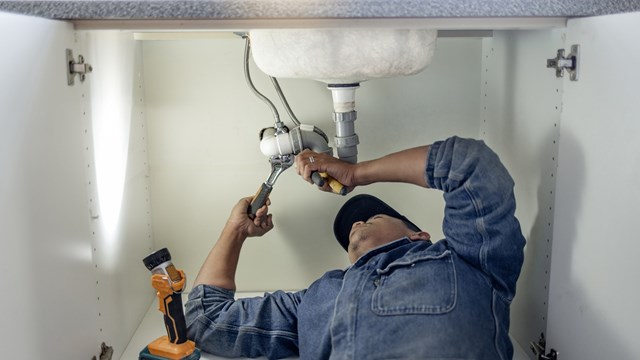
They are the glue that holds the whole process together, the ones who make sense of the world for board members, for vendors and consultants and for the families who make up South Florida’s condominium communities. They are community association managers, seemingly the one true constant in the always changing world of Florida real estate.
As with everything, though, the management business is changing. New faces are filling its ranks. New technologies are making themselves known. There are new approaches to old problems. Today’s property managers are adapting fast while at the same time, neophytes are entering the profession. As the industry continues to grow and evolve, where will tomorrow’s managers come from and what skills will they possess? And perhaps even more importantly, how will property management itself change in the coming months, years and decades?
The Not-So-Distant Past...
In the past, there were real estate people and management people. Now, following an historic recession that dealt a crippling blow to home sales and property values and slowed the real estate industry to a near standstill, more realtors than ever began making the jump to management. “We see a lot more real estate people [entering the field],” says Judi Allen of KW Property Management & Consulting in Clearwater. “The loss of income on the sales side is pushing them to look for other streams of income.”
Others entering the industry include former apartment complex managers. “They’re often coming from the rental side,” says Allen. It sometimes can be a difficult transition, however, as they learn that community associations are often more about persuasion than authority. “They had more leverage in a rental than an association manager does. For example, they have the power to evict a tenant.” In the world of condominium ownership, things are rarely that black and white.
More people are entering the management profession mid-career as well, says George Chismark, associate executive of the Institute of Real Estate Management’s (IREM) South Florida Chapter in West Palm Beach. “We see more people in their 40s and 50s who are changing careers,” he says.
So while in the past managers may have learned their industry from the ground up, many members of this new generation are coming at it from the side, moving horizontally on the career ladder in search of a slightly more stable market.
The Challenges Faced
For anyone in the management industry, whether seasoned professional or neophyte, the same challenges that hit real estate sales also have had a very deep and lasting impact on Florida’s condominium communities. “In the past, the questions used to be, ‘How do we get the best insurance coverage for our clients?’” says Allen. “Now the big issues are how do we deal with late dues. It’s about keeping the community financially solid.”
It’s the same with internal management, she says. “With the board, you’re making different decisions, too. Five years ago, it was about keeping up appearances. Now, for a three- to 10-year-old association, they’re looking at month-to-month financial issues. The older, more established communities are not as hard hit, depending on their planning. As a manager now, though, it’s about how to collect money. With some properties, it’s about how they can keep the water on. That’s how serious this problem is.”
Still, Allen says, hope is on the horizon. “It (the industry) is coming back, but it’s because the people in the business have been more resourceful.” New firms, for example, are springing up to help associations handle and reorganize their debt. Everyone, in short, is adapting.
Education & Experience
While a great many of Florida’s management professionals have years, if not decades, worth of experience in the industry, most are committed to continuing their professional educations. At the same time, the next generation of managers is making sure to keep in step with their training and accreditations. In a highly competitive field, knowledge truly is power.
Florida’s property managers are fortunate to have very active chapters of two top-tier professional organizations: the Institute of Real Estate Management’s (IREM) South Florida Chapter in West Palm Beach and the Community Associations Institute’s (CAI) Suncoast Chapter in St. Petersburg.
“CAI is a non-profit organization that’s technically an educator for homeowners and managers,” says Laura Hagan, executive director of CAI’s Suncoast Chapter. “We educate people on changing laws, licensing,” industry trends and more.
These days, class participants include “some managers just starting out” while others are from “management companies that have been around for 30 to 40 years,” Hagan says.
While CAI provides continuing education, a manager must first get licensed by the state of Florida, which requires an 18 hour course. Those who are new to the field benefit by enrolling in additional class offerings at organizations such as CAI, where they can attend breakfast programs on everything from changing insurance laws to new elevator regulations.
“The hardest thing now is for new managers to get into a new position where the company wants them to have experience,” Hagan says. Breakfast programs and networking groups such as CAI’s managers committee allow individuals new to the field to make contacts and gain an understanding of the same issues some of their more experienced colleagues already have mastered by virtue of their years in the field.
“It probably wasn’t as hard 20 or 30 years ago for someone to get a job in management, but now you’re handling million dollar budgets,” says Hagan. “You have to have reserves now and that’s harder to do. It’s harder to collect association fees. With an economy like this one, there are more and more pressures.”
As managers, Allen says, “We rely on CAI and we push our managers to be part of it. They provide so much information. We encourage our managers to know what kinds of meetings are available and then bring back that information to their co-workers.”
Since 1933, "IREM has been the source for real estate management professionals to build, connect, and grow,” according to its website. It is the only professional real estate association serving both multi-family and commercial real estate sectors. At IREM, those in the property management field, whether new to it or working up the ladder, can earn certifications as Certified Property Managers (CPMs) or Accredited Residential Managers (ARMs). In a job market where every advantage counts, these types of certifications can go a long way toward securing a position at a new firm or advancing up the ladder at a current job.
“When you become a CPM, it’s the equivalent of being a CPA” in the financial industry, says Chismark. Achieving those designations is worth the effort, and something that IREM is dedicated to helping managers pursue. “Our focus is education,” he says.
In order to keep their staff at the top of their game, most large property management firms in Florida and around the country offer a broad range of continuing education opportunities. “At KW, we do constant training,” says Allen. “When we bring in a new manager, we do two straight days of training. And from there, it’s ongoing. We have to stay on top of everything that’s going on out there.”
And the education is not just about personal advancement for today’s managers. It’s about performing the best service possible for their clients. “We have monthly meetings,” Allen says. They listen to other managers who have gone through and endured difficult professional situations. At one recent meeting, staffers heard from managers who were able to share their experience when a developer walked off and left them and their residents with an unfinished community. Their real-world survival story provided an invaluable learning opportunity for other managers who might one day face the same thing.
“Right now, we (managers) have to be out there finding solutions so we can bring those solutions to our boards,” Allen says. “We’re looking at municipal bonds. We’re looking at what our counties can do to help us. We’re looking at devices that can help cut back on water usage and water bills. We’re trying to cut costs for our clients but still keep things as they were.”
The Brighter Future
As difficult as life has been in property management and real estate in Florida over the last handful of years, there is still much to be admired, enjoyed and savored in this unsinkable industry. For one thing, Allen jokes, “there’s no snow removal in Florida.”
Aside from the glorious weather, though, the state itself offers a great deal to the property managers of today and tomorrow. “Florida is highly regulated,” Allen says. “It gives all of us strong guidance and keeps us in line. We’re not lawyers or insurance agents, so that kind of regulation helps us know where we stand.”
There also is a sense that today’s managers have weathered a difficult storm and come out stronger for it. “We’re all going to be a lot more focused on long-term planning,” Allen says. “I think this experience has taught everyone that they need to think long term, build their reserves and plan ahead.”
And for an industry that is focused on the home, no manager, whether old-school or newbie, can deny the pleasure of working with people who are enthusiastic about their neighbors and their associations. “I like working with communities,” Allen says. “I like to see them successful and proud of themselves.” Past, present and future, that message has always been at the heart of every good property manager’s mission.
Liz Lent is a freelance writer and a frequent contributor to The South Florida Cooperator.






Leave a Comment